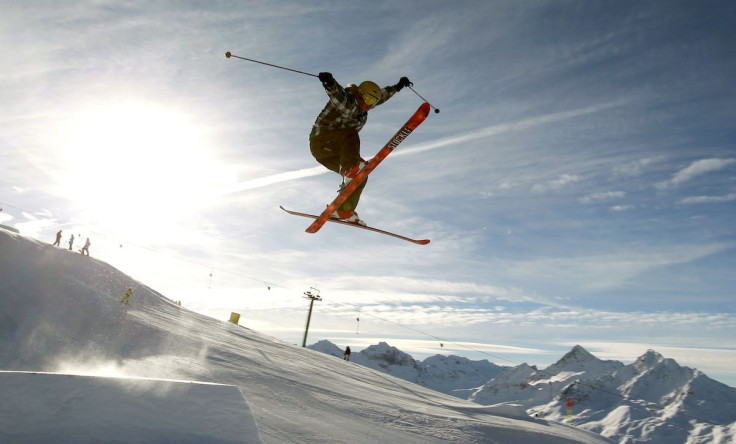Skiers Have More Fun Than Snowboarders, According To Sports Psychologists

A new study from a team of South Korean sports psychologists is sure to spark a snowball fight or two between winter sports’ biggest rivals: skiers and snowboarders.
In the report, published this week in the journal Applied Research in Quality of Life, researchers from Seoul’s Yonsei University found that skiers showed a higher level of pleasure and involvement in their sport than snowboarders did. In other words, the survey purports that skiing, at least from a psychological standpoint, is “better” than snowboarding.
The team of sports psychologists measured the degree of happiness and satisfaction of 279 skiers and snowboarders at three South Korean resorts to come up with their sure-to-be controversial results, assessing each athlete’s levels of pleasure, engagement and involvement in their respective activities.
The sample included 126 skiers (45.2 percent), 112 snowboarders (40.1 percent) and 41 who dabbled in both activities (14.7 percent). On average, skiers rated their own level of pleasure and involvement around five-times higher than those who snowboarded or participated in both sports. The study suggests that skiers tend to become more immersed in the “flow” of traversing a slope and are therefore more satisfied with the sport than their snowboarding counterparts.
The somewhat divisive study is likely to spark heated conversations not just on its limited sample size and restricted geographical area, but also on the ways in which the ski crowd and the snowboard crowd respond differently to questionnaires.
Regardless of the levels, lead author Hyun-Woo Lee found that the experience of both skiing and snowboarding provided such a high emotional boost that people will do it at great cost, for the sake of doing it, even if they only get to go out on the slopes once in a blue moon.
Lee added that both activities enhance happiness and have positive effects that extend beyond the sport to one’s everyday health, citing previous research that showed physical activity (and the “feel good” chemicals like endorphins, adrenaline, serotonin and dopamine the brain releases as a result) helps prevent mental illness, enhances positive thinking and buffers people against the stresses of life.
“Adult playfulness can influence people’s happiness, while activities and socially convening around a sporting activity such as skiing have positive psychological outcomes and contribute to overall well-being,” Lee said in a statement. “This is also true for people who only casually participate in sports.”
Thus, Lee advised people who organize such sporting activities to attempt to “build group solidarity and greater involvement so that people can grow emotionally, socially and creatively.”
© Copyright IBTimes 2025. All rights reserved.






















